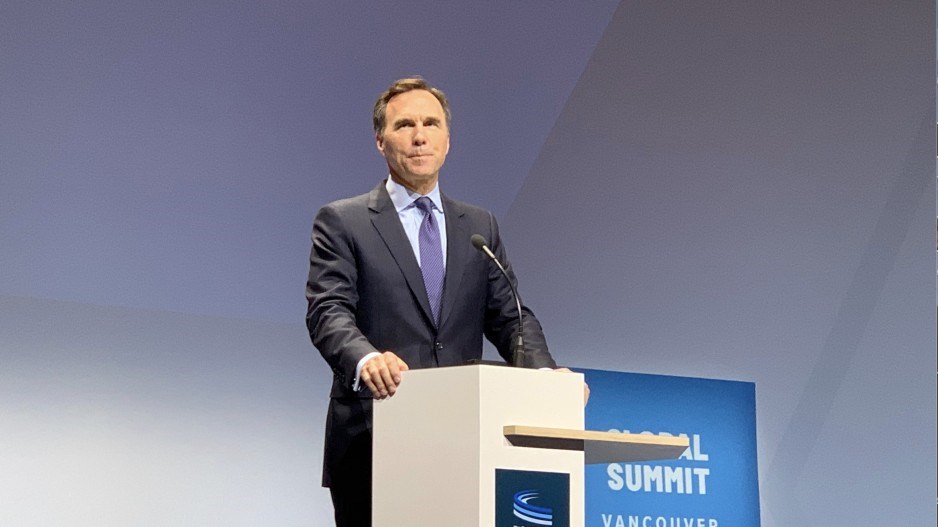The economic benefits from international trade and technological advancements are being distributed globally in an unequal way – something that is fuelling frustration and resentment among some, and spurring the rise of populism, Canadian Finance Minister Bill Morneau said in a speech to delegates at the Consumer Goods Forum's global summit in Vancouver on June 12.
Attendees included top executives at many of the world's largest consumer goods and packaging companies but the speech not only addressed how business and government should work together. It also may have hinted at some of the campaign rhetoric to be heard in the lead up to the federal election in October.
Morneau said that the disparity of wealth is widening across developed countries, with wealth increasingly going to those in cities and those in more senior positions at companies. The shift toward populism is happening not only because of that widening disparity but also because social media platforms, such as Instagram, make it easy for people to project images of living the good life even if that is a ruse.
"The average person is not putting their worst experiences up on Instagram and Facebook and Twitter," Morneau said.
"We're finding people get frustrated – not just small pockets of people, but larger and larger parts of our workforce. I'll tell you that recently I was at a meeting with Christine Lagarde, the head of the International Monetary Fund. What she calls this is the Age of Anger: an era where we have a level of frustration that means that increasingly our democracies – some of the very institutions that have gotten us to where we are – are at risk. This might sound to you to be dramatic, but I ask you to think about what's going on in our world."
One repercussion of this rise of populism, according to Morneau, was felt in the recent Burnaby by-election, where he said "we actually had a new right-wing party that gained 11% of the vote," referring to the People's Party of Canada, which won 10.6% of the vote.
Morneau lamented that this rise in populism has prompted party leaders around the world, including in Canada, to go to rallies where attendees were either anti-immigration or anti-abortion. That, he said, means that they have less time to address issues that matter in people's day-to-day lives – issues such as stagnant wages, fewer retirement programs, a changing job environment where some less-skilled people are challenged to keep up, consumer debt and climate change.
Morneau stressed that government has a role to work with business to make lives better for people, and to ensure that economic benefits are shared with the middle class and those in rural areas.
He drew on his background heading the human resources giant Morneau Shepell to remind the global executives in attendance that wage increases in recent years have been going to executives at a much higher rate than they have been going to people who are in middle-ranks of companies.
"It was not necessarily a bad economic decision, I suppose, for an individual company, because that might have been where they were gaining more value," he said. "But as you think about that over a longer period of time, you have people who are not getting those wage increases if they are stuck in the middle of organizations versus people who are getting significant wage increases. We need to think about that as a dynamic that causes particular challenges and levels of frustration."
Morneau hinted at what could be some of the Liberal Party's campaign rhetoric by touting how well Canada is doing and how Liberal initiatives have helped raise 825,000 Canadians out of poverty, including 300,000 children. They did that, Morneau said, by lowering taxes on the middle class, and providing enhanced child benefits.
Another program he highlighted was the Canada Training Benefit, which allows Canadians to take four weeks off from their jobs every four years to upgrade their skills. The cost of not being at work would be paid by the Employment Insurance program, Morneau explained.
"I think that it is business and government's responsibility to work together on that agenda because otherwise we are left with a level of frustration that is not good for the country, and certainly not good for any organization."
An example of his government working with business to reduce frustration often felt outside large cities is to provide grants to telecoms to build last-mile high-speed Internet to Canada's remote communities. Another is to invest in infrastructure necessary to ease food distribution to remote communities so prices for that food do not need to be so high.
"These are challening problems and I think we have no choice but to try to address them," Morneau said.




